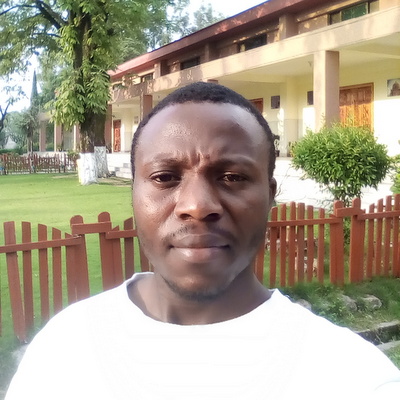
Dr. Jean Baptiste Sokoudjou is an enthusiastic and versatile scientist with a strong interest in biodiversity, microbiology and pharmacology.
‘‘I started to get interested in biodiversity in 2009 after participating to a botanical walk organized by the Department of Plant Biology at the University of Dschang,” Jean Baptiste tells us. “It was truly a great experience to discover some plant species and ecosystem services.”
He participated in a floristic phenological study conducted in the Mbamboutos Mountains of Cameroon in 2012. From 2012 to 2017, He was the coordinator of several health and environment clubs in public high schools in Cameroon.
Since 2011, Jean has been working with the ‘Réseau des Producteurs des Plantes Médicinales de la région de l’Ouest-Cameroun, REPPMOCAM’, with many centers for the disabled and “third age,” or senior, citizens to promote the organic farming and popularization of medicinal plants.
Since 2013, he has been a member of many international scientific organizations including Cameroon Forum for Biological Sciences (CAFOBIOS), Network of African Leaders for Biodiversity Conservation and Environment (NALBCE), International Society of Tropical Foresters (ISTF), and reviewer in many International Journals.
Last year, he organized a two-day workshop on ‘‘Encouraging private initiatives, interdisciplinary approach and institutional collaboration for sustainable development of Africa: case of NALBCE.” Jean also has published many articles on infectious diseases and natural products.
Jean Baptiste says he first learned about National Moth Week from Sunday Berlioz Kakpo, whom he knew from NALBCE.
As node manager of NALBCE, Jean Baptiste is currently involved in data collection for the biodiversity assessment and organizing an educational workshop and conference in Cameroon.
He says “it is a pleasure” for him to be joining National Moth Week as country coordinator for Cameroon and introducing moth watching to his country
“Despite the well-known functions of moths in the ecosystem, they are implicated as vector in animals and plants diseases, but [I think] they are a source of many natural compounds which may help in the treatment of several diseases,” he writes.
“Finally, participating in NMW will be extremely helpful for each citizen, as this will continue to improve our skills and strengthen our knowledge on moths and their role in the ecosystem especially in Cameroon, where little is known about them.”
Welcome, Jean Baptiste! We look forward to hearing more about your research on moths.